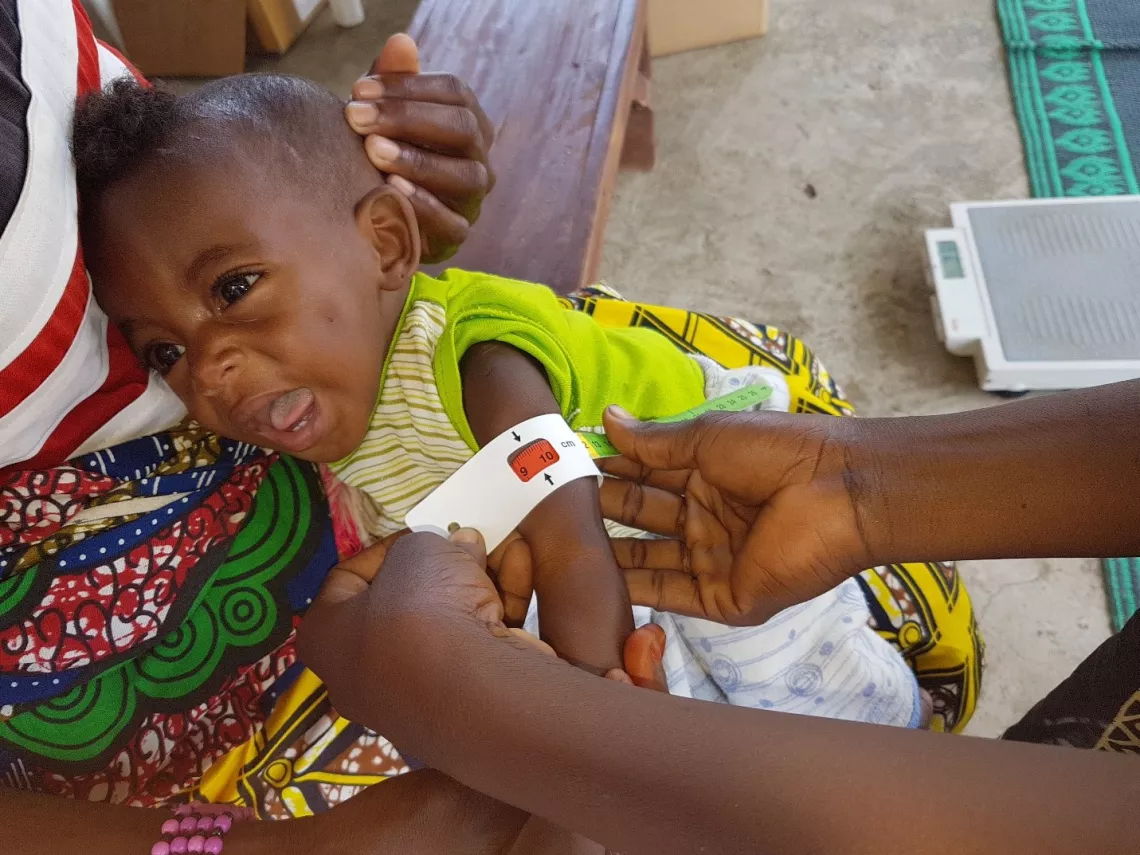Community volunteers: the bedrock of nutrition programmes in Borno
Community volunteers are trained to provide life-saving information to mothers on food and general hygiene, exclusive breastfeeding, child-care and optimal infant and young child feeding practices.

As she steps out of her door, Hadiza smiles, remembering that she does not need to go into her neighbour’s compound to check how her children are doing. Three were malnourished, and are now recovered after accessing treatment.
Hadiza Ibrahim is a UNICEF-supported community nutrition mobilizer (CNM) in Mafa Local Government Area, Borno State, whose role is to conduct routine nutrition screening, referral and follow-up of severe acute malnutrition in children aged 6 - 59 months in her community.
“Inakwana,” she greets a neighbour and proceeds to visit other families in need of her support.
Despite popular belief in the community, Hadiza is not a medical doctor. She is one of the 732 CNMs trained by UNICEF, with support from the Italian Government in the prevention of nutrition-related deaths in their respective communities across Borno and Yobe states.


Her interest to become a CNM was triggered by her neighbour, whose three children were malnourished.
“That was my motivation to become a volunteer. Within a few weeks I was able to counsel the family to enrol for treatment. Their main problem was the unhygienic environment they lived in. The training UNICEF gave me opened my eyes on how our everyday practices could hurt our health,” she says.
Everyday, Hadiza visits 50 households, looking out for signs of wasting and malnutrition in children aged between 6 and 59 months. Those who are malnourished are provided with ready-to-use therapeutic food, popularly known as “RUTF.”
She also provides life-saving information to mothers on food and general hygiene, exclusive breastfeeding, child-care and optimal infant and young child feeding practices.

Between 2018 and 2019, Hadiza says on an average, she saw at least 30 malnourished children every month. She referred over 300 children to treatment sites where they could access nutrition support and treatment. She also established two peer support groups for caregivers such as pregnant women and nursing mothers.
According to Hadiza, the UNICEF interventions have helped to avert infant and child mortality in her community.
"We would have lost many children to malnutrition. I saw a lot of children in very bad condition in my community. Children who obviously needed support. It would have been fatal if those children were not detected and supported on time," she said.
Through this Government supported programme, UNICEF and partners admitted 12,297 children with severe acute malnutrition to treatment sites with a high cure rate. The programme, which lasted for two years, also resulted in 58,497 caregivers being trained in effective infant and young child feeding (IYCF), while a total of 54,643 children between aged 6-23 months received multiple micronutrient powder (MNP) to boost their diet.
In Borno and Yobe States, UNICEF supports the State Primary Health Care Development Agencies to accelerate the reduction of child mortality and improvement of maternal health and nutrition. This is done through improved access to essential and quality maternal, newborn, child health and nutrition services.




